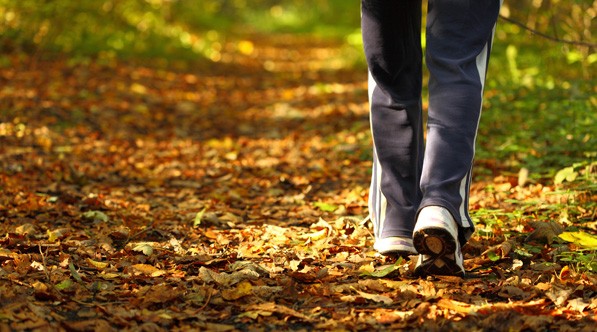With global warming tricking us into thinking the sunshine would last forever, Autumn has now fully arrived with a shock. The rain is beating done outside and the elms in my street are dropping their leaves on mass. This all makes for a slight shift in habits and activities, as we search for wet weather gear, and warmer options to stay active. Rather than continuing with your exercise by shifting inside, did you know that choosing to exercise outdoors actually has some great side benefits?
A walk in the park may soothe the mind and, in the process, change the workings of our brains in ways that improve our mental health, according to an interesting new study of the physical effects on the brain of visiting nature.
Most of us today live in cities and spend far less time outside in green, natural spaces than people did several generations ago. City dwellers also have a higher risk for anxiety, depression and other mental illnesses than people living outside urban centres, studies show.
These developments seem to be linked to some extent, according to a growing body of research. Various studies have found that urban dwellers with little access to green spaces have a higher incidence of psychological problems than people living near parks and that city dwellers who visit natural environments have lower levels of stress hormones immediately afterward than people who have not recently been outside.
Getting away from wifi signals, leaving our devises, distractions and worries at home, and allowing 30-60 minutes of mental clarity time is as good as resting or meditating for some people.
We’ve all seen the weekend warriors still out running while it’s pelting down outside, but that’s not everyones cup of tea. So to inspire you, here’s 4 tips on outdoor training as things start to cool down…
Be Spontaneous
If the sky is clear, get out now. There’s nothing like Melbourne weather to derail the best laid plans. And even if you only manage 20 minutes of brisk walking around the oval, that’s better than sitting on the couch.
Be Creative
Not all exercise is a workout. Playing a game of kick to kick with the kids, using the monkey bars to do some body weight exercises, a visit to Bounce, or even a few (safely executed) quick trips up and down the stairs, all contribute to your daily activity.
Be Flexible
Are you the person at the gym waiting for your favourite treadmill or spin bike, when there are others free to be used? If so it’s time to break out of your routines. Being adaptable and learning new skills and comfort zones are essential to maintaining your motivation and mental agility. A new experience creates new brain cells, and aids in memory retention and plasticity. This also means having a plan B. If your training buddy is sick, and you don’t like being outside at night your own, what’s your plan? is there a local footy oval with lights, where the team is training? Is there an outdoor heated pool you could use? Can you borrow your neighbours dog? Having a plan B, means you’ll always get the job done, even if something doesn’t go to plan.
Be Social
Joining a social sporting team is a great way to help you get over yourself. You may not want to be out at 7pm if it’s cold, but the team needs you! After the first 5 minutes you’ll be warmed up anyway. There’s heaps of easy sports that require no experience (or even fitness) to join in. Check out the Team Up app for teams in your area looking for players.
Here’re some suggestions for fun and accessible outdoor sports for cooler weather:
- Golf (or a hit at the driving range)
- Touch football
- Soccer
- Swimming (at a heated pool of course!)
- Basketball / Netball
- Cross Country running
- Rugby / Football
- Tennis
There are myriad options and gains to be made, so get outside and have some fun!

